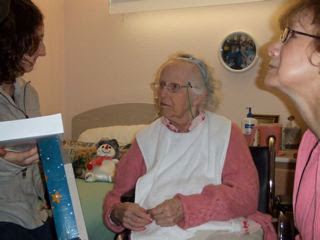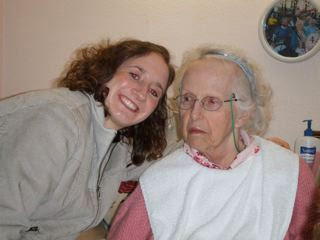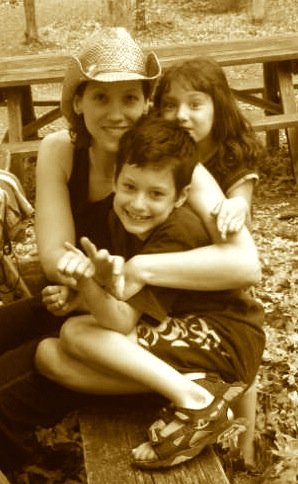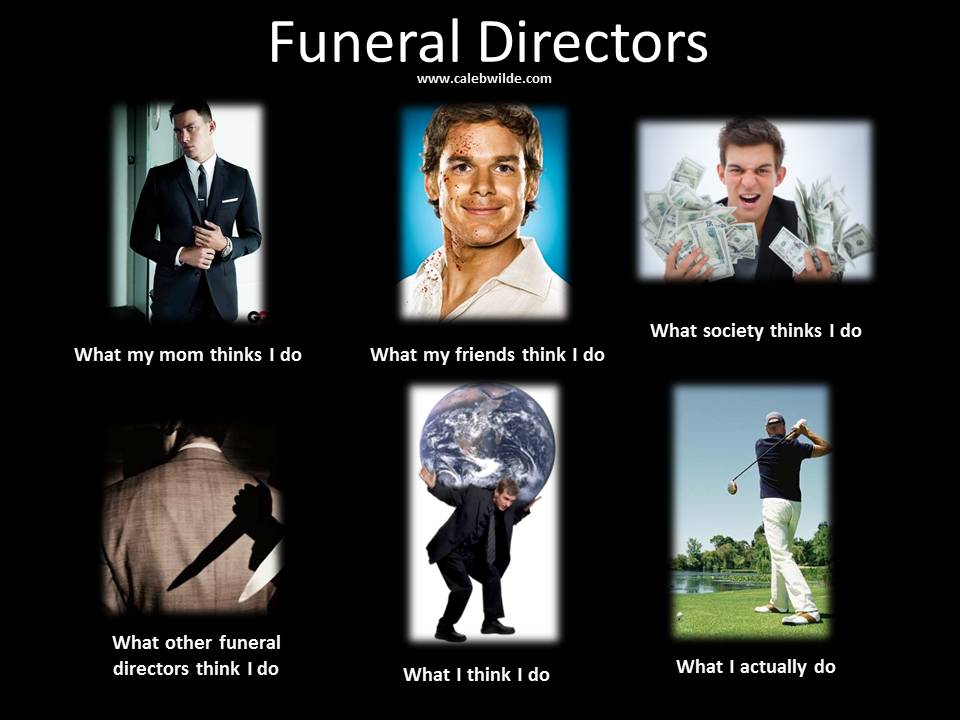Death
Silent Grief
Today I’m privileged to feature a post by Erica McNeal.
Ever since I wrote “Learning from Michelle Duggar”, I’ve come to recognize that there needs to be voices for the many women and men who struggle through the silent grief of miscarriages and still births. I’ve come to realize that for many it’s hard to share for fear that no one will listen; after all — as I’ve heard too many times — “it’s no big deal … it’s just a miscarriage”.
It’s even harder to mourn in that loneliness; but it needs to be done. The pain and grief needs to be vocalized. That’s why I’m so glad that there’s people like Erica who are both sharing and mourning. Thank you, Erica. We need your voice!
*****

Erica McNeal
As I sat in the church pew yesterday, there were little babies all over the place. Two to my left, two to my right, two behind me and one in front of me.
I thought of Kylie.
Deep breath.
As the music played, I fought my tears.
Out of the corner of my eye, I noticed movement and saw two little girls, playing with their brother. Two little girls and a boy… what could have been…
I looked up at the lighted cross in hopes of distracting myself.
I thought of a concert my husband and I went to as Steven Curtis Chapman bravely sang, “Cinderella”; the very song he had written for his own daughter before her tragic death. My husband had looked up at a similar cross in hopes of distracting himself from the emotion of this song. But, instead, when he saw the cross that day, he envisioned Jesus holding our little girl.
This is what the cross reminded me of today. And, the tears began to form.
At the exact same time when I thought about how empty my arms felt and how much my heart ached, my husband handed me a seven-month old baby girl to hold for our friend who needed a hand.
“How Great is Our God” began to play. The very song that kept me on my feet after our failed adoption of JT, and the song that became our adopted son’s namesake.
Tears flowed as I snuggled this sweet little girl. What a beautiful moment and gift from God.
Those of us that experience the loss of a child don’t just grieve their death. We grieve the broken hopes and dreams we had for our child and our family. We grieve all of the moments that will never be. We grieve the empty crib, the clothes that may never be worn, and the toys that may never be played with. We grieve the day we will never walk our daughter down the aisle, or watch our son hit his first baseball. We grieve the empty void that lives on and remains in our family. It is an ongoing, silent grief, that comes without warning every time we realize that another dream or hope has been crushed.
Our grief journeys through jealousy of others to bittersweet joy; from gut-wrenching heartache, to helping those who have experienced a similar tragedy. And yet, our journey is highly unpredictable and deeply personal. We often grieve silently so as not to make others feel uncomfortable or awkward. We take deep sighs, ponder our thoughts for a moment, and press forward, hoping that the tears we shed are not too obvious. Because, in reality, our grief really has nothing to do with other people, and what they do or don’t have.
Our grief is about what we wish we could still hold, and talk to, and hug, and snuggle, instead of what is solely imprinted in our hearts and minds.
And yet…
I find HOPE in a Redemptive Savior whose own silent Suffering in the Garden of Gethsemane caused Him to sweat drops of blood. He’s been there!
He understands a silent grief more intense than I will ever know.
And this fills me with COMFORT knowing that my deepest sighs and silent tears will never go unnoticed by God!
(Psalm 139:1-22, 2 Kings 20:5)
*****
ERICA’S BIO: Erica McNeal is a three-time cancer survivor, who has also experienced the loss of five children, two of which she held in her arms. She is the author of Good Grief!, a resource guide that stands in the gap between people who are hurting that don’t know what they need, and their loved ones who have no idea how to help. Erica has also shared her life experiences as a guest speaker in ten different states to churches, women’s groups, and military leadership groups.
Erica’s vision is to challenge the Christian line that states God will not give us more than we can handle because she believes that God will allow us to be stretched beyond our human capabilities in order to show us our need for Him, to deepen our faith, and to show us that HIS strength is limitless!
You can subscribe to her blog and follow her on twitter.
Unempty Moments

Aly, her mother and grandmother
I can’t remember anything but her underwear.
I can’t remember the day or even which convalescent facility we were in. I can’t remember what my mom was telling me or what I was wearing.
What I can remember is her underwear. They were big, literally granny panties. Soft cotton. Conservative white and new baby pink. No lace or ruffles.
I can remember how they folded softly in my mom’s hands. She caressed them absentmindedly as she spoke.
We were moving my grandmother into a new facility.
We were in the repeat-the-same-question-every-five-minutes stage of her dementia, not yet to the frantic wheelchair racing or the evergreen season of suspicion. She hadn’t yet looked desperately into my eyes and asked if I could find her mother.

Aly and her mother
But still, we were scared, my mom and I. Missing the mother and grandmother we once knew. The woman who remembered her legendary spaghetti and meatballs recipe and walked loops around her apartment complex with friends bearing names like Petey or Marge.
The fear hung silent between us as we unpacked her clothes, a few books, some pictures of toothy grandchildren for her bedside table.
Henri Nouwen talks about patience as one of the cornerstones of the compassionate life; impatience the deterrent that keeps us tapping our feet, checking our watches, and missing the glory of God.
By this point in the story, (like you I venture to presume) I should have been tapping my feet, checking my watch and writing off another summer afternoon as “empty, useless, meaningless.”
But I didn’t.

Aly with her grandmother
The counterpoint to impatience, Nouwen describes another rendering of time when we experience the moment as “full, rich, and pregnant.” When “somehow we know that in this moment everything is contained: the beginning, the middle, and the end; the past, the present and the future; the sorrow and the joy; the expectation and the realization; the searching and the finding.”
This was one of these moments. Watching my mom delicately fold my grandmother’s underwear. In this moment I was gripped by the thought that love need be nothing more than this simple, intimate act.
It became an unempty moment.* A moment I didn’t want to get away from. A moment filled with the glory of God.
To this day, this afternoon represents a rupture for me. A rupture that signaled not a fracture, but a deepening. A deepening love for my grandmother. A deepening respect for my mom. And a deepening gratitude for every humdrum moment-turned-miracle I had left with both of them, together in one room, folding underwear, in an unempty moment.
****
*Precious moments was already trademarked.
****
Aly Lewis is a twentysomething writer from San Diego, Ca. When she’s not writing ridiculously witty and yet still thoughtful and inspiring copy for the international non profit Plant With Purpose, you can find her roller blading, showing off her dope hip hop moves, or overanalyzing her quarter life crisis. She has a passion for social and ecological justice, anyone who speaks Spanish, and experiencing the God of the unexpected. You can check out her mismatched musings on life here: http://memoirsofalgeisha.blogspot.com/.
And make sure you are one of the first followers of Aly’s newly hatched Twitter account!
On Not Knowing Where Your Dad is Buried
Today’s guest post is from Lisa Colón DeLay, who describers herself as “CREATIVE, NINJITSU INTERVIEW PRACTITIONER, IMPROMPTU HUMORIST, DISPENSER OF FREE SAVVY, SPIRITUAL FORMATION PROVOCATEUR.” You can stalk her on Facebook, follower her on Twitter and visit her blog. But, be forewarned, if you attempt any form of stalkery, her Ninja skills will find you out.
****
 The long and drawn out precursor to my father’s death is something out of a bad made for TV movie. It has all the twists, turns, and unbelievability that would make a most incredulous 90 minutes on the small screen. After all, how many people do you know incur a brain stem infarction (kind of like a stroke, but much creepier and not nearly as well-known) only to live through it, become permanently brain injured, and profoundly disabled (think: Terri Schivo). Then comes the 11 year grieving process as he physically wastes away in a nursing home, battling countless infections. At the onset, I was 20 and my father was 44. You can’t make stuff like this up. And I didn’t even mention the lawsuits.
The long and drawn out precursor to my father’s death is something out of a bad made for TV movie. It has all the twists, turns, and unbelievability that would make a most incredulous 90 minutes on the small screen. After all, how many people do you know incur a brain stem infarction (kind of like a stroke, but much creepier and not nearly as well-known) only to live through it, become permanently brain injured, and profoundly disabled (think: Terri Schivo). Then comes the 11 year grieving process as he physically wastes away in a nursing home, battling countless infections. At the onset, I was 20 and my father was 44. You can’t make stuff like this up. And I didn’t even mention the lawsuits.
Death and its many friends wreak havoc on an already shattered family. The details are scandalous, but not as important or profound as a memorial service with no body with whom to part. The trouble isn’t so much the service or the memorializing, it’s not being told where they laid him. It’s not just me–it bothered Mary Magdalene quite a bit too. My step mother still sends Christmas and Easter cards, but she’s never told me where my father’s ashes are buried. He could be on her mantle, for all I know, or interred at a secret place as a result of paranoia. A bit of spite can go a very long way.
And so what resurrects is not a hope in seeing my dad’s resting place, but rather in understanding that many, if not most things in life remain outside of my control. Even things one would consider simple and common.
I’ve thought about what I’d do if I knew where my father was buried. In the movies it’s always raining when they bury someone. Later when people visit the grave, it’s usually breezy. It’s warmer out too, which is nice. I would pick a mild day. 72º and mostly sunny. I’ve pictured myself putting notes, or flowers, or photos near the headstone. Praying as a sit in the grass near the site, or singing. A grave doesn’t help the one who died, I’ve realized. It helps the one who’s left behind.
Transforming from the bruised hopes of a missed connection with a departed loved one, I think more about the living now, not the dead. And about my own living. Some of that I can and should control. Photos and memories take the place of a gravestone, and I try to do right by how my dad would want me to think about the situation.
He’d want me to be gracious. He’d want me to remember not where he was buried, but how he loved me, and the better parts of how he lived. And that is actually the same thing I want for my own children. The bigger lesson is in the living memory, not the ground marker. (I say this to myself when I’m feeling particularly strong.)
Maybe the marked spot would trap me somehow the way an unknown spot never can. Maybe it’s not so savage after all. Maybe I can find a gift in the pile of manure. With a Living God this is possible.
I wish for everyone to get whatever they need in the process of grief. I understand what mementos mean. They are precious things because they signify something that mattered. They honor what was lost. But for those who have nothing to call a burial place for someone they love, I wish for freedom from that sort of extra hurt. I wish for something bigger and life-giving to grow out of that tender spot.
Turtles, Trees, and the Spiral of Time
Today’s guest post is from bereaved parent Joy Bennett.
*****
Joy Bennett
I’ve always pictured time as a line, with me an unchanging dot moving from moment to moment from birth on one end to death at the other. I have an almost visceral reaction to thinking of time, and myself within it, like this. In this model, I am static. The dot that is me remains unchanged as it moves through each moment. And at points of loss, the vision of me moving relentlessly farther and farther away from the person lost aches to my core.
I read something recently that describes time as a spiral. The spiral illustrates how then is very much a part of now and it all influences what’s next. It describes how dynamic and alive we are as we move through life.
I think time-as-spiral is a better model. It recognizes that we are more than a static pile of cells. We are constantly being shaped by the interaction of our individual characteristics and choices, our past (the full spectrum of joys and pains we’ve experienced), and our future (our goals and plans and dreams).
I am the person I am today because of my past experiences, my joys and pains, and the quirks that make me me. You are the person you are today because of what makes you you, what you’ve experienced already, and what you hope to do in the future.
I am fascinated by the ways each person’s experiences shapes them, and how much they control that shaping. A lack of depth of experience renders a person less developed but less scarred. A wide and deep range of emotional experience can ripen a person into a rooted maturity, or it can singe them into a scarred, cynical shell.
My own life experience was relatively unremarkable before the birth of our first child. I overcame a handful of hurdles growing up: a few small heart-breaks, the deaths of two grandfathers, a cross-country move, the crucible of working as a resident assistant in a conservative Baptist college’s dormitory. (Two words: not fun.) Engagement, wedding planning, and the first year of marriage were mostly euphoric, with a few requisite lows, some tears, and a lot of talking things out. I remember sensing that life had been too calm and that something big was coming.
Then Elli arrived. We were catapulted into what seemed like an alternate universe. Hearing words like, “I wish I could say, ‘but the good news is ___,’ but I can’t” fires depth charges into your soul.Kissing your infant goodbye before surgery, knowing that the odds are 1 in 5 that she’ll survive for you to kiss her again, is one of the darkest paths one can tread. The sleepless nights caring for a child too sick to catch a breath or stop coughing or who just can’t sleep confronts you with darkness that you never dreamed lurked inside yourself.
That alternate universe wasn’t all dark desperation, though. We uncovered the pure delight of watching a child learn how to laugh, discovering how to make her smile, and celebrating each hard-won milestone. She redefined what was important and what was worth our energy.
Elli carved the raw material of us and left a distinct contour on everyone who met her. She’s been gone nearly three years, but the mark she made on each of us is permanent. We are now faced with what we do with it — how to move forward. What we choose each day is shaping us.
We all leave marks on the people with whom we interact. Whether those interactions provoke dark valleys or euphoric highs is often out of our control, but we can determine how it shapes us.
But how? How can the things which wound and scar us so deeply become the very things that strengthen us and equip us to help others?
Jesus.
This is one of the many beautiful themes we find the Bible. Terrible things happen. I will not say that God causes tragedy, but I will declare that God is not thwarted by it. God can take natural disasters and the evil schemes of people and make those things produce good, in spite of themselves. This is what happened when Jesus was killed — people murdered God’s Son and yet, that very thing that was meant for evil became the greatest good ever accomplished on earth. In the worst betrayal ever recorded, Jesus defeated death and made peace with God for us. Joseph’s brothers were jealous of him and meant to do him harm when they sold him as a slave. But God used it to save Joseph’s family and preserve the nation of Israel through them. We see it in nature, in the rejuvenation of a forest ravaged by fire. Over and over, we see God redeeming tragedy.
When I remember this, when I trust God to bring something beautiful out of my pain (even if takes years), I grow stronger. When I forget it, when I’m overcome by the circumstances and see only myself and what was lost or damaged, the pain burns and scars and my heart withdraws into a cynical bitter shell. (And as one who has hidden in my turtle shell and licked my wounds many times, hope is never lost. God can redeem even that, and he can transform the most recalcitrant turtle.)
How do you think about time and yourself in it? Who and what has shaped you? How are you responding to it?
*****
Here’s Joy’s bio: “I am a writer, thinker, asker of questions, mother, wife, bereaved parent, walking by faith, still in process. I’ve blogged since 2005, writing on faith and doubt, family life (which is always humorous even with the medical spin), grief, and the depression that I only recognized a year after our oldest died at the age of 8. Views expressed are my own and do not reflect those of me yesterday.”
Send your love and likes her way on Facebook, add yourself to her Twitter tribe and check out Joy’s incredible blog!

